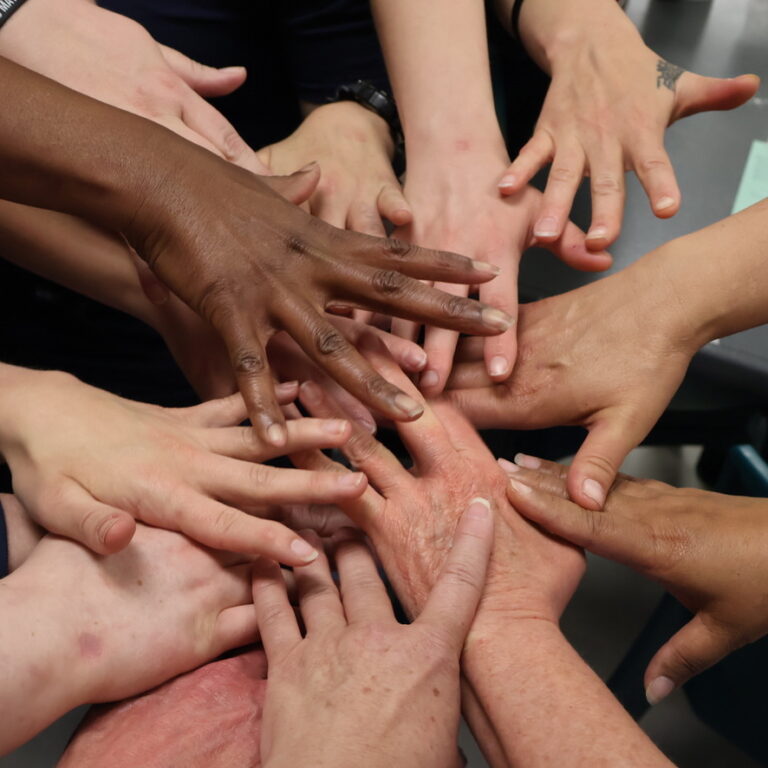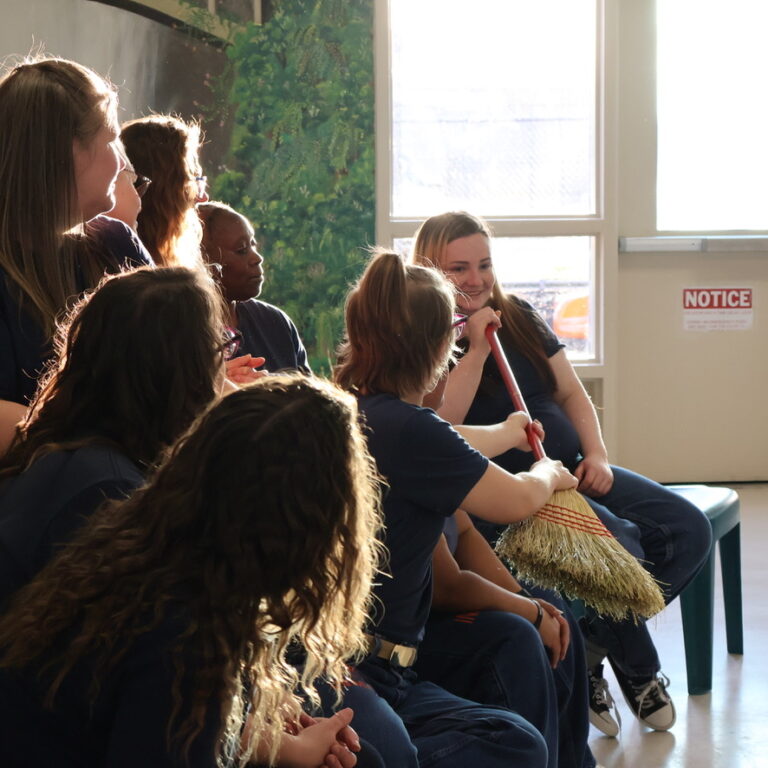The broom that stood still.



Set at the women’s prison in Wilsonville, Oregon.
When we first brought the broom into the classroom, no one expected it to stand—literally, upright, on its own. The first time felt like a prank. The second, a story. By the third, it was magic. “It stands up by itself,” someone whispered. “Only the prison brooms,” said another.
What started as a prop became a symbol—of creativity, superstition, and quiet defiance. It became a boat oar, a fishing rod, a golf club. One woman made it a flying carpet. It didn’t make the final play, but in that room, it was real. She stepped onto it, arms outstretched, face turned toward the ceiling like it might become sky. But the broom never lifted. Not really. She stepped down, quietly, and whispered, “I guess some things don’t get wings in here.” Someone else said, “But you imagined them. That’s the first flight.”
In time, theater stopped being just Friday nights. It spilled out into everything… Into whispered lines during yard time… Into shadowy bunks lit by nightlights and dreams… Into journals filled with monologues and secrets.
“We laughed together. We could be weird and be ourselves.”
“We weren’t alone anymore. Some days in prison just felt dark, and with the theater group… well someone was always willing to share their light.”
It’s not about the broom. It never was. It’s what we made it mean. It’s the bruises from turning it into a deer rifle. The poem that became a song. The spaghetti jokes. The ugly grey scarf we passed around like it had magic in the threads.
“We swept up broken pieces. And found each other in the dust.”
The Q&A after the show was special—raw, funny, full of insight. For a moment, the walls felt thinner. We can’t wait for next time!

